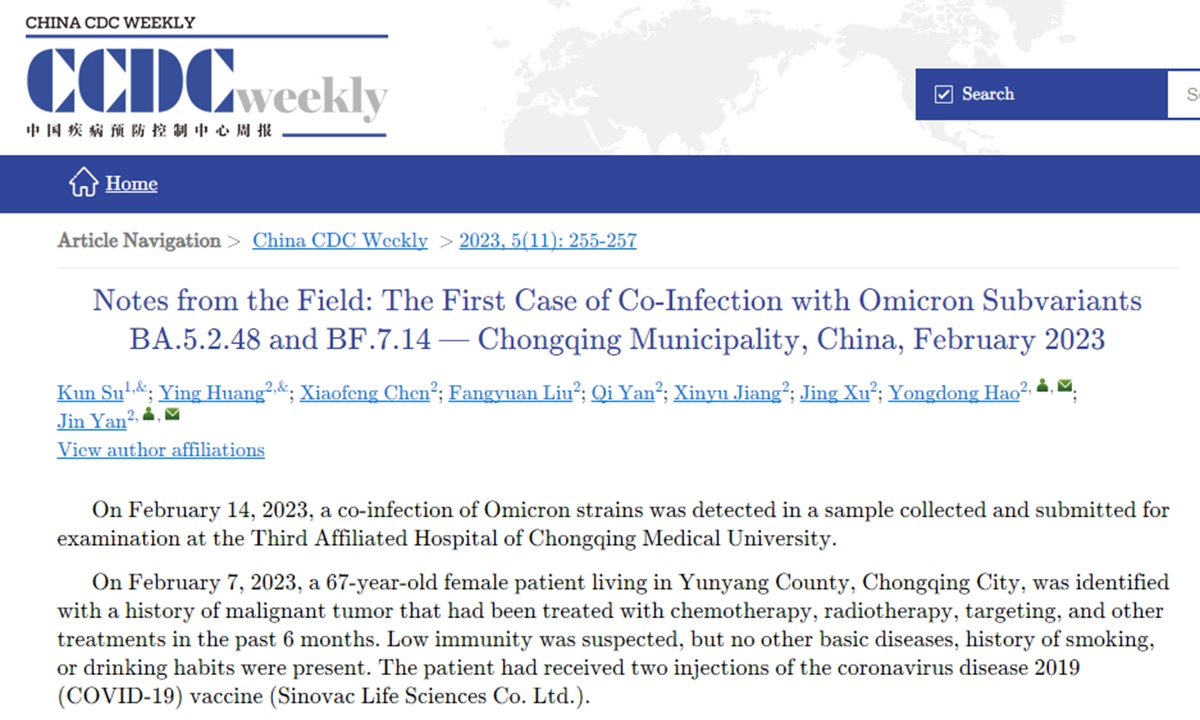
Photo: Snapshot from the Chinese Center for Disease Control and Prevention website
China reported its first domestic COVID-19 case of an individual co-infected by two Omicron subvariants in the country's Southwest Chongqing Municipality, stressing the increasing importance of monitoring COVID-19 variants amid the rising risk of various variants co-circulation.
On Saturday, the Chinese Center for Disease Control and Prevention (Chinese CDC) said it has detected a total of 86 local cases infected by 20 different key variants from December 1, 2022 to March 16, 2023.
According to a weekly report released by Chinese CDC on Friday, a co-infection of BA.5.2.48 and BF.7.14 was detected in samples of collected and submitted for examination at the Third Affiliated Hospital of Chongqing Medical University on Tuesday.
The samples were taken on January 28 and February 7 from a 67-year-old female patient living in Yunyang county of Chongqing, who became infected in late December 2022.
The patient, who has tested positive eight times from January 6 to February 12 in the hospital, was diagnosed with low immunity as she had a history of a malignant tumor that had been treated with chemotherapy, radiotherapy and targeting during the past six months.
Before this case, there have been no reports of co-infection with BA.5.2.48 and BF.7.14 in the Chinse mainland, particularly in Chongqing where the predominant COVID-19 variant was BA.5.2.48 (>90 percent) and BF.7.14 only accounted for about 3.8 percent, according to the report.
The probability of co-infection is extremely low as it may occur in individuals suffering from low immunity who are not able to clear one variant out of the body within two to three months and become infected by other variants during the same period, according to Li Tongzeng, chief physician from the respiratory and infectious diseases department at Beijing You'an Hospital.
Li said currently it would be difficult for co-infected patients to transmit both the variants to other people as the two variants may not be transmitted at the same time and herd immunity is still present in the community.
Li said researchers needed to keep an eye on whether the viruses will mutate or recombine to produce some new strains within the body of co-infected patients.
The report noted that as the risk of variants co-circulating in a particular region continues to increase, the monitoring of COVID-19 variants, especially for key populations suffering from immune deficiencies, is becoming increasingly important.



